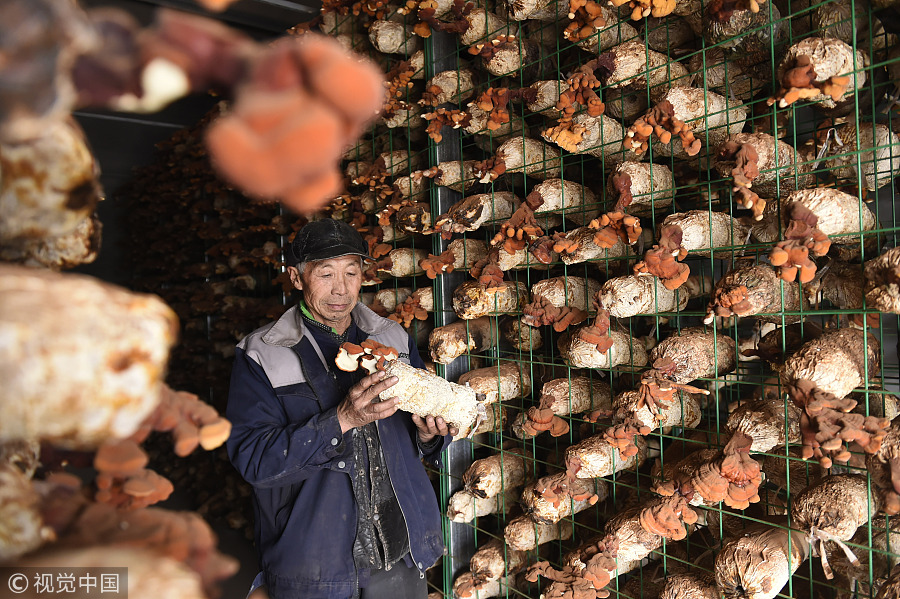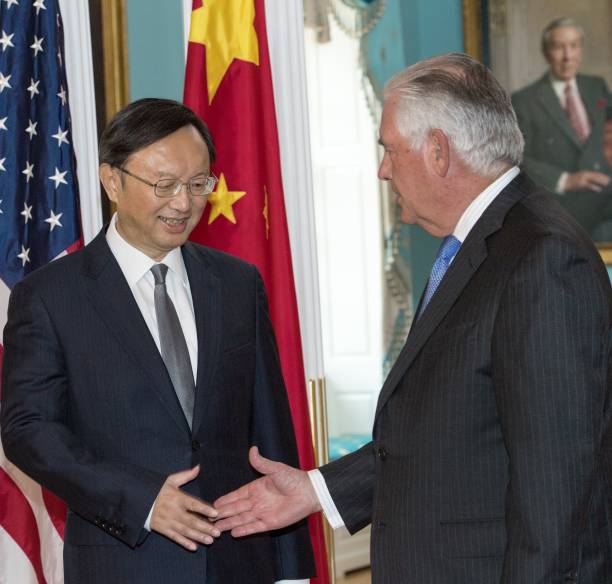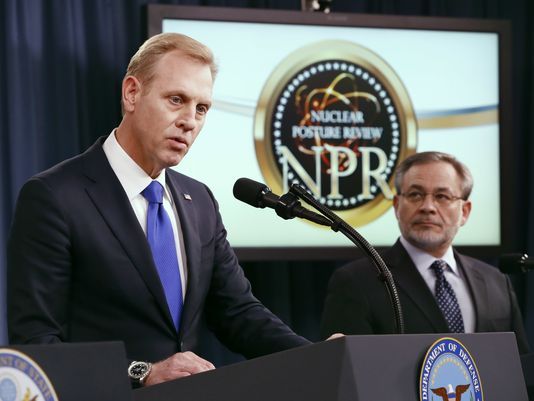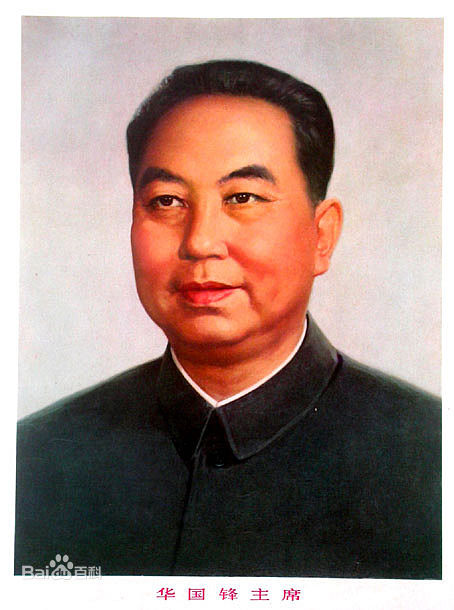
 China Releases the "No.1 Central Document" Containing New Rural Policies
China Releases the "No.1 Central Document" Containing New Rural PoliciesThe Chinese central government has released a key policy document, called the "No. 1 Central Document," which addresses problems in China's rural areas and lays out a strategy for rural revitalization. It was jointly issued by the State Council— China's cabinet— and the Central Committee of the Communist Party on Sunday. The document states that the government considers the improvement of rural areas to be a critical goal on the path towards national modernization. It also claims that there is a development imbalance within China, which is prominent in rural areas.
Much like in other areas of policy, the document lays out a timetable for the achievement of its targets: by 2020, no Chinese people should be living under the poverty line; by 2035, all Chinese people, whether in urban or rural areas, should have equal access to basic public services; and by 2050, the revitalization of rural areas should be completed.
Among other new policies, the government will "moderately relax" controls on rights for rural land allocated for villagers to build homes and houses left vacant by city-bound migrant workers, Caixin reports. It will also look to extend trade in agricultural products between countries along the Belt and Road, and seek to include rural residents in the process of rejuvenating and local policymaking. In line with President Xi's statement to the 19th Party Congress, the No. 1 Central Document also focuses on the importance of environmental protection and the creation of a "beautiful" landscape. Local and provincial officials will be held accountable for realizing the strategy, Reuters reported, and their success in doing so will be a "yardstick" in deciding upon their promotion.
 Yang Jiechi Visits the United States
Yang Jiechi Visits the United StatesState Councilor Yang Jiechi, China's top foreign affairs official, was in the United States for a two-day visit this week and met with U.S. Secretary of State Rex Tillerson on Thursday. Their talks were reported to cover the issues of China-U.S. trade and North Korea's nuclear program, in particular the recent improvement in relations between North and South Korea. "Both sides reaffirmed President Trump's and President Xi's commitment to keep up pressure on North Korea's illegal weapons and nuclear programs," State Department Spokeswoman Heather Nauert told a news briefing.
Chinese state-run Xinhua News reported that Yang raised the One China policy during the meeting and made China's stance on Taiwan clear, requesting that the U.S. take China's concerns seriously. "Tillerson said that the United States remains committed to the One China policy," the outlet said. China's concern over Taiwan was likely in reference to the passage of the Taiwan Travel Act by the U.S. Senate this Wednesday. It was passed by the House in January. The act aims to encourage high-level exchanges between officials of the United States and Taiwan, and has been criticized by both American and Chinese commentators.
Yang's visit came shortly after reports that China is instituting an overhaul in the way its diplomatic relations are handled, aimed at making China a more effective global player. Bloomberg reported this week that the Chinese Communist Party is reforming its Ministry of Foreign Affairs to empower ambassadors to have greater control over their own portfolios. China aims to "forge a politically resolute, professionally exquisite, strictly disciplined foreign affairs corps," as a reform committee led by President Xi Jinping stated last year.
 China in the U.S. Nuclear Posture Review
China in the U.S. Nuclear Posture ReviewThis week, the U.S. Department of Defense released the 2018 Nuclear Posture Review, a legislatively-mandated review that establishes U.S. nuclear policy, strategy, capabilities and force posture for the next five to ten years. Trump's new nuclear policy review, the first to be conducted since 2010, assess the threats to the United States and calls for an expansion of the American nuclear arsenal to combat rising adversaries like China, North Korea, and Russia. Many experts are calling the review a dangerous echo of cold-war rhetoric that led to increased nuclear competition. However, some analysts have commented, the hawkish nature of the 2018 NPR may be attributed to the Department of Defense lobbying for greater resources, rather than an actual defense strategy. Nonetheless, concerns over China's military modernization are made clear in the document.
Although Russia was listed as the primary threat, not China, the review frames China's increasing military capabilities and lack of transparency in their nuclear capabilities as a threat to U.S. security. China-US Focus contributor Ben Reynolds explains that while "China's military modernization program continues apace, including the continued development of conventional area-denial weapons like long-range anti-ship missiles," there is no evidence linking "this fact and the proposed investment in the U.S. nuclear arsenal." He asks, "How would expanded U.S. nuclear spending curb Chinese efforts at military modernization?"
Ren Guoqiang, a spokesman for China's Ministry of Defense, said China "firmly opposed" the new report, and added that the U.S. is taking "wild guesses." In the statement he argued that China "has always kept its own nuclear forces at the minimum level required by national security," emphasizing that the U.S. already has the world's largest nuclear arsenal.
In the initial version of the report, the Pentagon mistakenly labeled Taiwan as part of China. The report was temporarily removed from the Department of Defense website over the weekend before a corrected version was released. "Though an honest mistake, it will add to friction with Asian allies," Adam Mount, the director of the Defense Posture Project at the Federation of American Scientists, told CNN.
 This Week in Chinese History
This Week in Chinese HistoryThis week, in 1976, Hua Guofeng became the (acting) Premier of the People's Republic of China, signaling the rise of a Chinese communist party leader who many considered a bridge between the Mao era and the era of Deng Xiaoping.
On February 4, 1976, Hua succeeded Zhou Enlai as the Premier after Zhou's death a month earlier. Hua became the CPC chairman after Chairman Mao's death in September. One of Mao's political allies, Hua rose to power in the 1960s and 1970s as a key supporter of Mao's policies. In an early move as CPC chairman, Hua's security forces arrested the Gang of Four, effectively ending the Cultural Revolution which had lasted for a decade.
His short stint in power lasted only a few years. He was eventually stripped of his leadership positions as the reform-minded Deng Xiaoping rose to power and steered China towards market-oriented changes. Deng was widely considered a primary architect of China's reform and opening up process from 1978, while Hua was seen to be a bridge between the Mao era and the era of Deng Xiaoping. Hua Guofeng died in 2008 at the age of 87.
Prepared by China-US Focus editorial teams in Hong Kong and New York, this weekly newsletter offers you snap shots of latest trends and developments emerging from China every week, while adding a dose of historical perspective.
- 2018-02-02 Wang Qishan Appointed to the National Legislature
- 2018-01-26 New Edition of the Focus Digest
- 2018-01-19 South Korea and North Korea to Compete Together at the Winter Olympics
- 2018-01-12 U.S. House of Representatives Passes Taiwan Bills
- 2018-01-05 U.S. Rejects Sale of Moneygram to China’s Ant Financial
- 2017-12-22 Trump’s National Security Strategy Labels China a “Revisionist Power”
- 2017-12-15 White House and Secretary of State contradict each other on North Korea talks
- 2017-12-08 China Boasts its Technology Chops at the 4th Annual World Internet Conference
- 2017-12-01 The Future of the China-US Economic Relationship
- 2017-11-17 The “Indo Pacific”: A New American Strategy for Asia?
- 2017-11-10 President Trump Revels in China’s State-Visit Red Carpet Treatment
- 2017-11-03 Will China Display Hard or Soft Power in the Era of Xi?
- 2017-10-27 All Eyes on Xi
- 2017-10-20 The 19th Party Congress Begins
- 2017-10-13 Tech Titans
- 2017-10-06 China’s Super Golden Week
- 2017-09-29 All Quiet on North Korea’s Western Front?
- 2017-09-22 Back Together and Better than Ever: Renewed Sino-Russian Relations
- 2017-09-15 China positions itself to dominate the industries of the future
